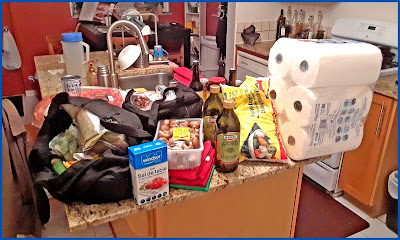How To...
26 February 2019
originally drafted around June 2011
hard to say... i am such a slow poke
jp melville
I thought of a subtitle:
Don't Let Your Wants Get Ahead of Your Smarts
One of many lessons in basic economic survival.
Somewhere in the background of this blog idea is a minor bit of consciousness. Always remember that everything that you buy is being sold to you. The people who try to sell it to you think all the time about how to sell it to you. That's a lot of thinking. Important to note that they are not thinking of your best interests, just how to make a buck. You might as well play the game and think about how you want to buy. Most of the time, you are the only one watching out for Numero Uno.
It adds up, because these days almost everything we do is a financial transaction. What do they say, if you practice just a little bit every day, after 10,000 efforts you are an expert. You do have to THINK about it, of course, and that does take some sweat. Why not? By the time you are 30 you have probably purchased close to 10,000 things. That leaves you with another 50 years of easy going on the "how to buy stuff" front. You can worry about other things and quietly know that you are already an expert in at least one field of life.
Here is a little lesson in <How To>.
How to Shop for Groceries
One of my mantra's: if you have to do it everyday, you might as well do it well. In the minimum, think about it just a wee bit beyond the "I want" impulse.
Here is a picture of shopping.
This is my kitchen counter, about once a week. Not that I am very good at shopping. But I take pleasure and always pay attention to the prices. After all, by the end of my life, I may have shopped some 2000 times. Very modestly, that would be 50 times a year over 40 years. Sometimes someone else does the shopping, of course. If in today's dollars I spent $50 each time, that would be $100,000. If I pay attention to pricing, very modestly I might reduce the price by 5%, which would be $5,000 in my pocket, to spend on something else, of course.
One way I try to be sure to pay the 5% less is simply to have in a corner of my mind a small closet of <things I need>, which means that though I may not need it today, I can buy it today if I see it for a lower price and use it up tomorrow when I need it. Does not apply to perishables, except in the reverse. I may want parsley today, but dill is on sale, so I simply change today's menu.
I know that $5,000 may not sound like much over a lifetime.
And by no means do you have to do your shopping my way.
The trick is to think about it in your way, consciously, in your interests.
An important point is that there is primary impact on you, as a result of being conscious on a regular basis about a little thing: awareness of context and flows (energy flows, time flows, cultural flows = movement).
You can apply the shopping principle to pretty much all the basic economic activities that we experience in a lifetime. There are not that many of them, really. Imagine how many times you will become an expert! In, like, these kinds of ways:
How To Fix Things
How To Cook
How To Sleep
How To Care for a Baby (or anyone else, for that matter)
How To Buy a Car (arrange transportation)
How to Manage Money (this arises from the principles described above and applies to the whole list)
How to Spend (ditto)
How to Invest (ditto)
How to Get a Girl (or your choice of emotional attachment)
How to Clean a House
How to Buy a House (or put a roof over your head)
How to Get Married (or affirm your kinship system)
How to Stay Warm
How to Stay Cool
How to Learn
How to Deal with Your Health
How to Do Laundry
How to Do Dishes
How to Relax
Now, in my opinion this list is mostly exhaustive. Pretty much anything you do can fit under one of these categories.
However, if you really want to be successful in life, like wealthy, a famous artist, or plain old plum satisfied with pretty much anything and modestly in control of your existence, you need to consider this last skill set:
How to Make Things
Once you think about it, you will be surprised at how few people know how to make much of anything. Most of us just do stuff. Some of us fix a few things. Very few actually make anything.
Suggested Read:
Daniel Kahneman "Thinking, Fast and Slow".
Nobel Prize in Economics


No comments:
Post a Comment
Post Your Thoughts